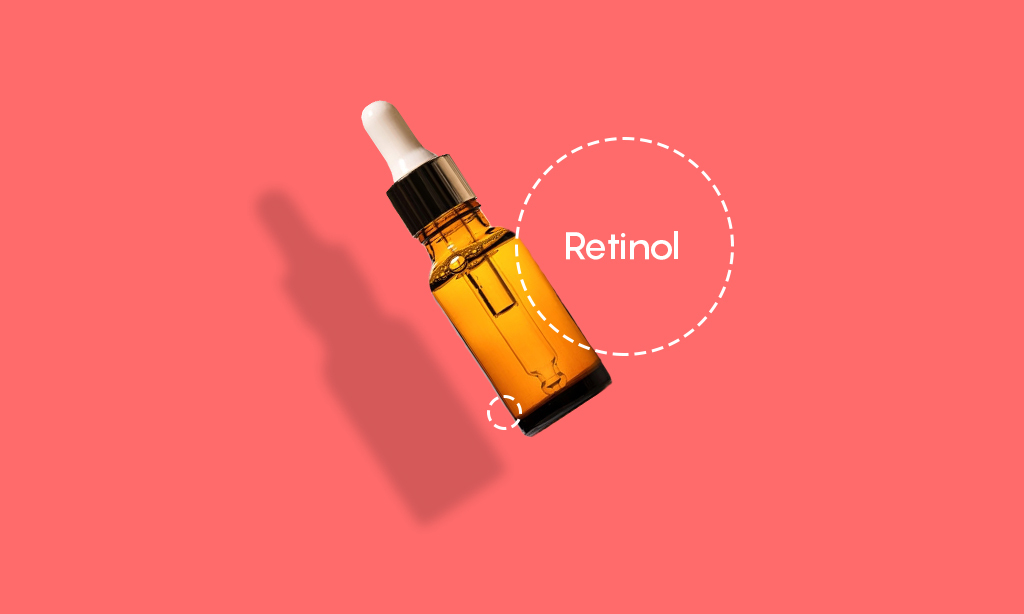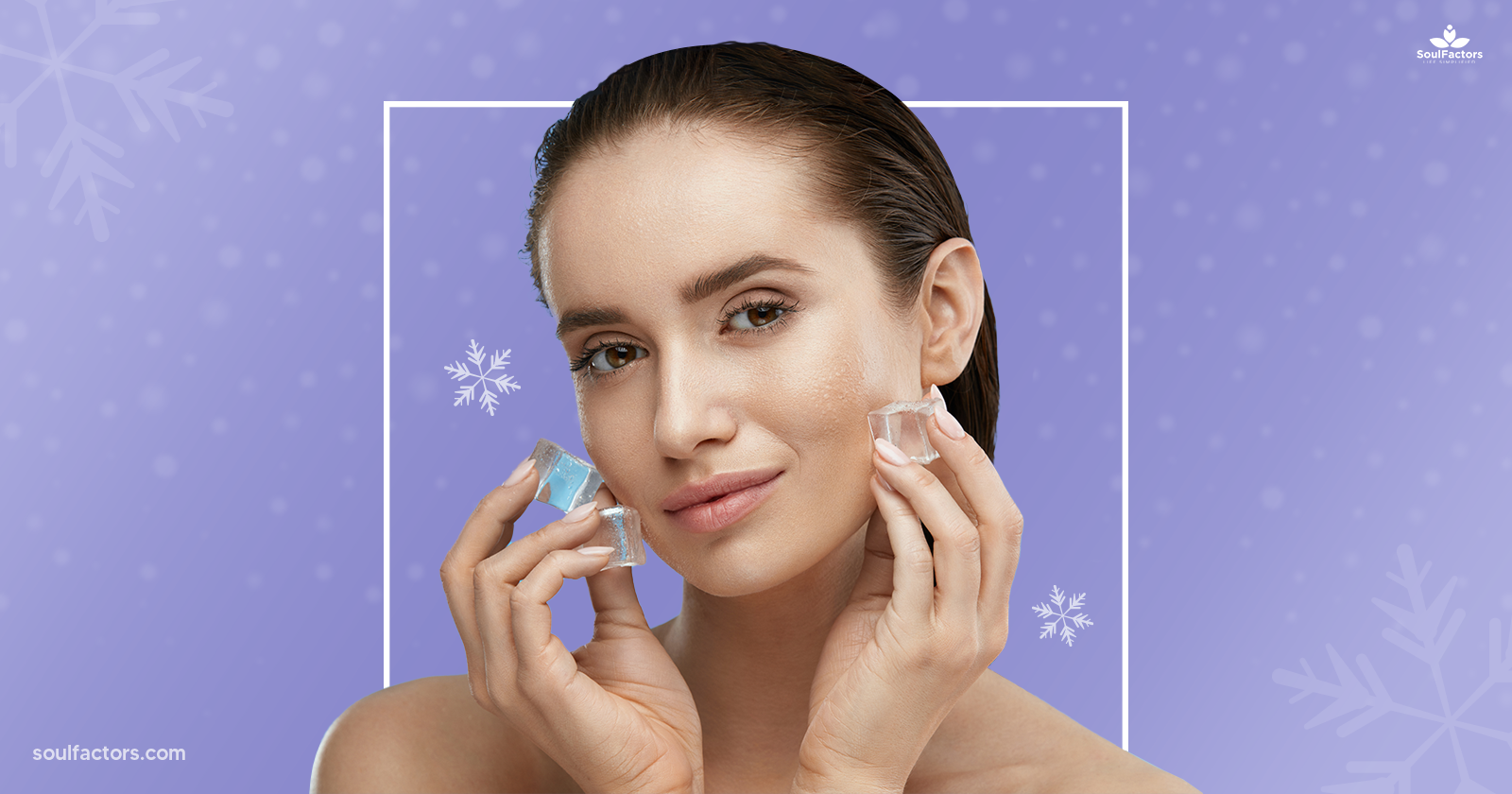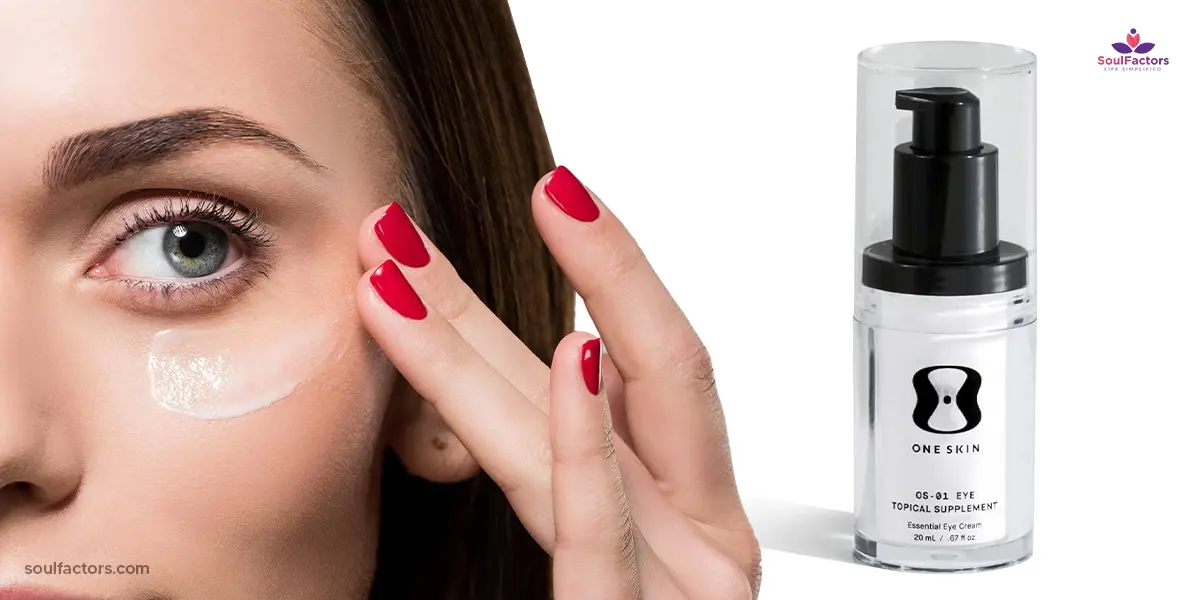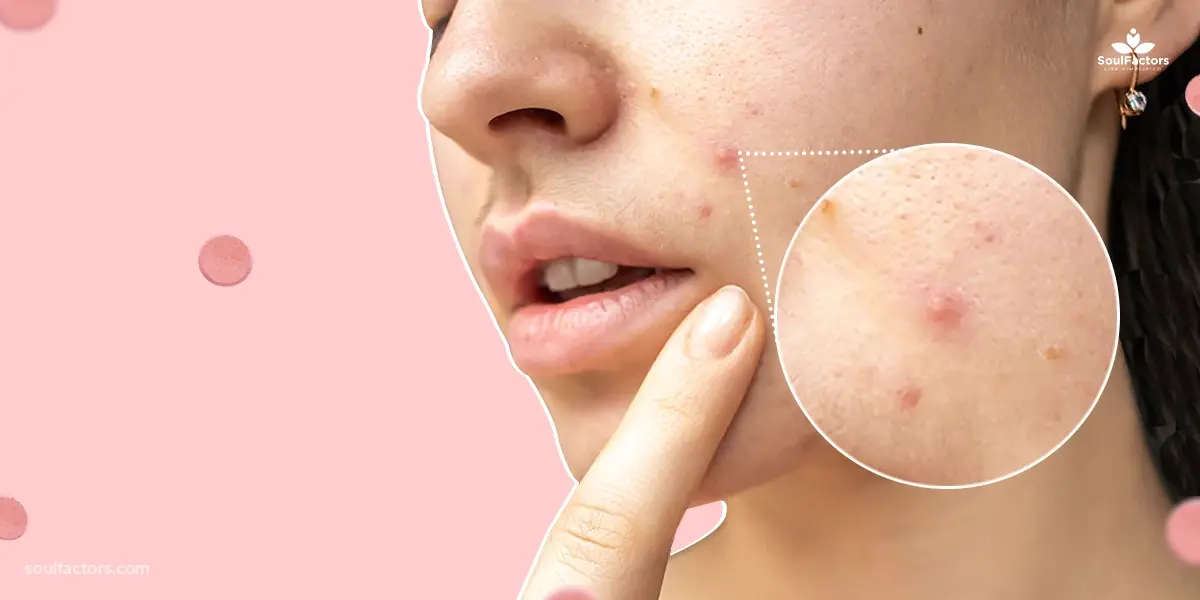Retinol For Acne | The Magic Potion For Aging Skin!
The world of cosmetics is celebrating Retinol. Not only for its ability to turn the clock back on your skin, but for those stubborn acne.
On Apr 14, 2023 – 13 minutes read

You may or may not be a dedicated devotee of retinol, the magic potion for aging skin. But you have to agree that it is hailed as the holy grail of skincare ingredients and, more specifically, the golden standard when it comes to anti-aging. Because it sweeps clean and banishes those acne breakouts and every other skin concern you usually hide by caking your face with a heavy-duty foundation into oblivion. No wonder every dermatologist, esthetician, facialist, and skincare guru consistently recommends calling in the big gun that is retinol for acne!
Why Should You Use Retinol for Acne Breakouts?
Did you know that retinol is the only medication scientifically proven to have anti-aging properties? It is one of the most transformative yet misunderstood ingredients. This is why some people still haven’t come around to using retinol for acne breakouts, or for any skin woe for that matter.

This could be because you may have heard of it but aren’t sure what it is and how it works. Or simply because you have no clue how effective it is or you believe those misleading myths about retinol. Some of the common myths are that all retinoids are created equally, it causes sun damage, it thins the skin, or that it makes your skin peel.
Sure retinol may not be for your skin. But don’t let these misleading myths about retinol deter you from giving it a try. In this article, you will understand what is retinol and how it helps acne along with other skin issues.
What Is Retinol and How It Works
Retinol, the magic potion for aging skin, is an over-the-counter vitamin A derivative that treats basically any skin concern. Retinol for acne, uneven skin tone, clogged pores, enlarged pores, fine lines, wrinkles, blackheads, dark spots, dullness, you name it, it treats. The benefits of retinol include,
- Increases epidermal turnover (the process of replacement of tired-out skin cells for fresh new ones)
- Stimulates skin’s natural collagen synthesis
- Decreases inflammation
- Smoothes wrinkles
- Minimizes other age spots
- Clears acne flare-ups.
Let’s get deeper into how retinol works, what it does for acne(1), your skin, and why you should add retinol to your skincare routine. Especially if your skin is struggling with acne breakouts and flare-ups. Considering it is one of the important benefits of retinol, let’s see how retinol helps acne. Vitamin A derivates, in general, help clear acne as they help to regulate skin cell turnover. It clears all kinds of acne—blackheads, whiteheads, cysts— you can think of.
No shade to salicylic acid—exfoliates dead skin cells and benzoyl peroxide—kills acne-causing bacteria, but retinol works from the inside out. This makes them so effective. Retinol works on a cellular level by seeping the retinoic acid into your skin cell and binding it to nuclear receptors.

How does retinol work for acne?
Nuclear receptors, as you know, are responsible for functions like cellular metabolism, inflammation, proliferation, and skin cell death. All of these kickstart the cell turnover process, which is why retinol for acne is considered an effective solution. What this does is the following:
- Clears acne and blackheads
- Unclogs clogged pores
- Decreases the size of pores
- Reduces oil production
- Reduces the stickiness of cells that clog pores
When the pores clear, your skin will be free of breakouts. Also, this allows other topical acne medications to penetrate effectively. Another good news is that retinol pushes dead, damaged, and hyperpigmented cells to the surface to make room for new skin cells.
When you dissolve dead skin layers away, you allow new smoother skin layers to surface. This helps reduce the appearance of acne scars. Also, retinol is usually combined with other hydrating and brightening ingredients to help your skin further.
Retinol VS Retinoid
Some people interchangeably use retinol and retinoid(2) and indicate that they are the same. But though they are both pure vitamin A derivatives, both of them are different. So are Retin-A and retinol. All of them are cousins —related but different. Retinol is a type of retinoid (a catchall term for all vitamin A-based formulas in both otc and prescription varieties—that work at different levels) used mainly in over-the-counter products instead of prescription medications. Though they come under the same umbrella, they are different on a molecular level. So, what is the difference between the two? How do you use retinol for acne?
The chief difference between the two is their concentration and strength. All of them are vitamin A derivatives converted into retinoic acid for use in skincare to produce its effects. But retinol, in comparison with retinoid, contains less concentration of active retinoic acid. This is the main reason why retinol is considered as a subset of retinoids that errs on a much gentler side.
This difference in strength makes them work the same way but on different levels. Retinoids are stronger, thus, work faster. Retinol is slower but gentler on the skin. So, it all comes down to how intense you want the product you want to be.

Why Retinol?
Otc retinol is in ester forms, which take more steps to be converted to the active retinoic acid. This in turn weakens the product. However, this in no way, suggests that retinol is ineffective.
What it means is that you have to be patient to reap the beneficial results of retinol. Because it works gradually, which definitely helps someone who has never used the R-fam. You have to add retinol and retinoid into your skincare slowly and gradually by building your tolerance.
Another difference between the two is that retinoids normally require a prescription. On the other hand, you can snap up an otc retinol without a doctor’s prescription. You can identify retinol on the product labeled under the following names:
- Retinyl palmitate
- Retinaldehyde
- Retinyl linoleate
- Retinyl acetate
- Propionic acid.
Best Retinol Products for You to Try
There are several retinol products you can apply to your skin. They come in different forms —creams, serums, and gels— to treat different skin issues. So, it may be overwhelming and confusing to choose one from the seemingly endless options. Fret not, I have compiled a list for you. Read on and you’ll be all set to use retinol for acne.
Ahead, find a list of a few of the best skincare products with retinol. Choose one and start using it to treat acne and other aging signs!
Keep in mind that if you are new or have sensitive skin, start with a low dose of retinol —around 0.025%. Once your skin adjusts to it and you have no adverse reactions, you can slowly move up to a higher percentage.
Shani Darden Retinol Reform
A cult favorite retinol serum from esthetician Shane Darden that promises clearer and smoother skin. Regardless of whether you use it once a week or nearly every day, it keeps the promise. The lightweight serum improves the teeny whispers of wrinkles, lines, acne breakouts, blemishes, and dark spots for visibly clearer and glowing skin.

Price: $88
The fruit extract of Pyrus Malus helps reduce visible signs of aging while providing antioxidant protection for healthier skin. Though this effective yet gentle retinol serum contains lactic acid, it solves the skin concerns of your aging skin without drying or irritating your skin. Instead, the exfoliating alpha-hydroxy acid smoothens and brightens all types of skin. Plus, the serum is vegan.
Peter Thomas Roth Retinol Fusion PM Night Serum
This night serum infused with retinol helps you wake up with fresh, bright, silky, and smooth skin. Being one of the cult favorite retinol products, it delivers the magic of the ingredient. Without its cursed side of stinging and burning.

Price: $65
Because micro-encapsulated retinol is evenly distributed to prevent redness or irritation of the skin. Also, vitamin E and C nourish your skin to help it become smooth after effective treatment of retinol. You can also thank the hydrating properties in the lightweight formula that work together to clear your skin. Meaning, you can say goodbye to your acne spots and fine lines as well.
Retinol for Acne: Murad Advanced Acne & Wrinkle Reducer
Murad’s products are impressive, not aggressive, making this the best retinol cream for acne. Packed with retinol, salicylic acid(3), and glycolic acid, Murad’s advanced acne, and wrinkle reducer does what it says. The rich formula with retinol in it modulates skin maturation and shedding, preventing the plugs that cause acne from forming. The addition of salicylic and glycolic acids further loosens the bonds between chunked dead skin cells.

Price: $54
Further, the combination accelerates natural cell turnover to improve skin texture as well as skin tone. All you have to do is massage the cream evenly over your clean face, neck, and chest. You can also get rid of the acne-related redness your skin has.
This specifically formulated retinol for acne-prone, aging skin. Because of it, this one also prevents hormonal breakouts, reduces wrinkles and fine lines without overdrying your skin. So, you can be assured that this one does spark a change of skin.
RoC Retinol Correxion Deep Wrinkle Night Cream
With pure retinol, this night cream is so strong and effective that you would think your skin will be irritated. But the brand claims the product is gentle enough for even daily use. Without irritating your skin, RoC’s deep wrinkle night cream reduces the appearance of wrinkles, fine lines, and expression lines and hydrates your skin while you sleep.

Price: $18
The cream also contains minerals that nourish the skin and it is non-greasy and non-comedogenic. All of these benefits come at an affordable price. So you don’t have to worry about skimping on applying it to your areas other than the face.
Retinol for Acne: Neutrogena Rapid Wrinkle Repair Serum
The best drugstore retinol serum to treat your wrinkles and acne breakouts without causing further breakouts, thanks to its lightweight formula. It contains accelerated Retinol SA along with a combination of helpful ingredients.
For instance, Glucose Complex accelerates your skin’s surface activity to speed up the results. And, hyaluronic acid hydrates and rejuvenates the skin. Retinol SA is effective at renewing the appearance of the skin, which helps diminish the spots of aging.

Price: $18
With a perfect blend of hyaluronic acid and glycerin, this anti-aging serum absorbs instantly. This results in smoothing the fine lines and texture you want to get rid of. Apart from that, it also brightens the uneven skin tone (thanks to acne breakouts!) and helps fade deep wrinkles, including your crow’s feet.
A clinical trial of 100 women who saw noticeable changes in just one week of use proved its effectiveness. But of course, with retinol, you have to stay around using it for the result to stick around.
First Aid Beauty FAB Skin Lab Retinol Serum
For those with sensitive skin, First Aid Beauty’s retinol serum is an ideal choice. This low-octane serum is gentle as it uses only a 0.25% concentration of retinol. It also uses a blend of hyaluronic acid, colloidal oatmeal, aloe, ceramides, allantoin, vitamin C, vitamin E. All of these work together to hydrate, soothe, calm, and replenish your skin for a refreshed appearance. This one is also one of the best retinol serums for beginners.

Price: $58
Hyaluronic acid is a naturally occurring polysaccharide in the human body. When you use it in your skincare, it effectively acts as a moisture binder and helps your skin become supple. So, when you see a retinol product with hyaluronic acid, go grab it! And this potent retinol serum with the mix of hyaluronic acid tends your skin in such a short amount of time.
Paula’s Choice Clinical 1% Retinol Treatment
One percent of retinol is a big deal. This is why this highly potent retinol serum with a big dose is best used with caution. If you have sensitive skin or haven’t used retinol products on your skin, go for FAB’s gentle formula. But if your skin hasn’t reacted badly to retinol when you used it before, this serum could be your clever booster.
This doesn’t mean you don’t have to use it in conjunction with your moisturizer. Because even 1% retinol is no joke. So, this way, it cushions any potential blow.

Price: $58
Moreover, the serum contains soothing plant extracts to deliver a calming influence to the application. Alongside 1% of retinol, it contains a cocktail of antioxidants to keep free radicals from dimming your complexion. Plus, the moisturizing and emollient ingredients, brightening vitamin C, and anti-aging peptides help the serum treat your aging skin just fine.
The serum leaves out fragrances and dyes to decrease the risk of skin irritation and redness. But if you experience any redness or dryness, be sure to reduce the amount of usage. If there is no negative reaction, you are allowed to increase the frequency. From 2 or 3 nights each week, you can apply it every night.
Dermalogica Overnight Retinol Repair
This is a powerful and effective treatment to the skin that diminishes the appearance of all aging skin concerns you have. From wrinkles and fine lines to uneven skin tone and discoloration, the Overnight Repair cream can improve your skin’s firmness and texture. Active microencapsulated pure retinol helps in cell turnover and increases collagen production. Whereas powerful peptides and vitamin C help fight aging signs.

Price: $90
Along with these ingredients, it also contains a clinically proven bio-energized copper amino acid complex. It helps improve your skin’s firmness by reducing visible wrinkles. For best results, you can mix one part of Overnight Retinol Repair with up to three parts of Buffer Cream.
This helps the skin acclimate to the highly potent and active form of retinol. When paired with their buffer cream, you can adjust your retinol dose. Make sure to clean your skin before applying it at night. Once your skin is acclimated, you can use Overnight Repair alone —before or mixed with your moisturizer from Dermalogica.
How To Use Retinol for Acne?
When trying out retinol products, follow the product instructions carefully. Also, it is best used with the “low and slow” approach —to proceed gradually. Start by adding the retinol product to your skincare routine one night per week in the beginning. Wash your face clean and wait for half an hour before applying retinol to reduce the risk of infection.
You can start using a very small, pea-sized amount at night (the best time for skin repairing). If you don’t notice side effects, you can apply it more often. Also, you don’t necessarily have to use retinol daily for it to be effective. You shouldn’t stop using it once you notice an improvement in acne either.
Side Effects Of Using Retinol for Acne
Granted, the results of retinol won’t be as dramatic as retinoids but it poses a lower risk of side effects. However, just because it’s mild doesn’t mean that it does not come with its own caveats.
Yes, it is suitable for all skin types, oily skin in particular. But if you have sensitive or dry skin, there is a chance for your skin to reject retinol. It could also be because of you using it too often, using too much of it, mixing retinol with other hash ingredients, or not prepping your skin before using.
The side effects of retinol include:
- Skin irritation
- Dryness
- Redness
- Stinging
- Itchiness
All of these are more likely when you start using retinol for the first time. Typically, the reactions mentioned are not too hard to manage. As your skin adapts to the product, it should subside. If they continue after a few weeks, you must switch to a lower-strength product or cut out retinol application altogether. More importantly, if you are pregnant, talk to your doctor before using retinol.
Final Thoughts
Retinol is the ultra-effective yet gentle derivative of vitamin A to treat almost all skin concerns. Skin experts particularly recommend retinol for acne treatment. After using retinol on your skin, the result will be clearer, smoother, brighter, and spotless skin. But as with any powerful skincare ingredient, you have to practice restraint as well as patience. After all, good things come to those who wait, right?

Subscribe to Newsletter
Elevate your routine, stay on trend, and embrace a personalized beauty journey with our curated insights.





Write a Comment